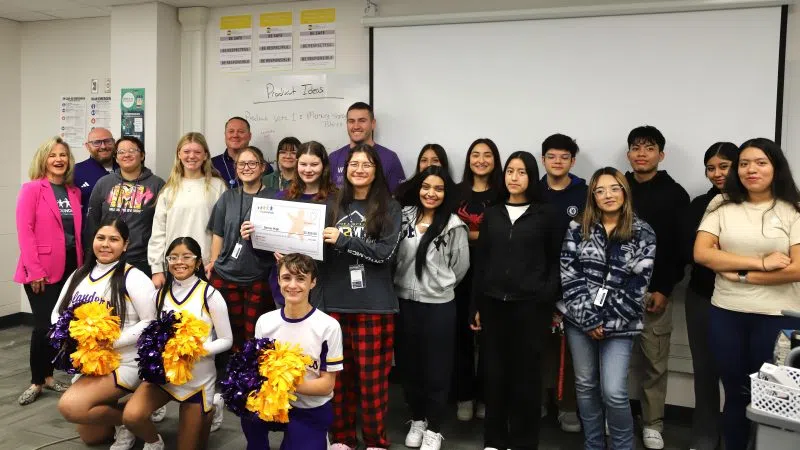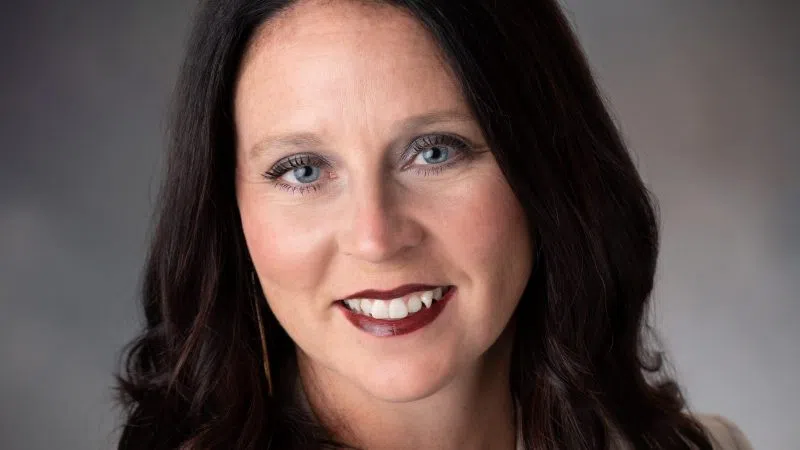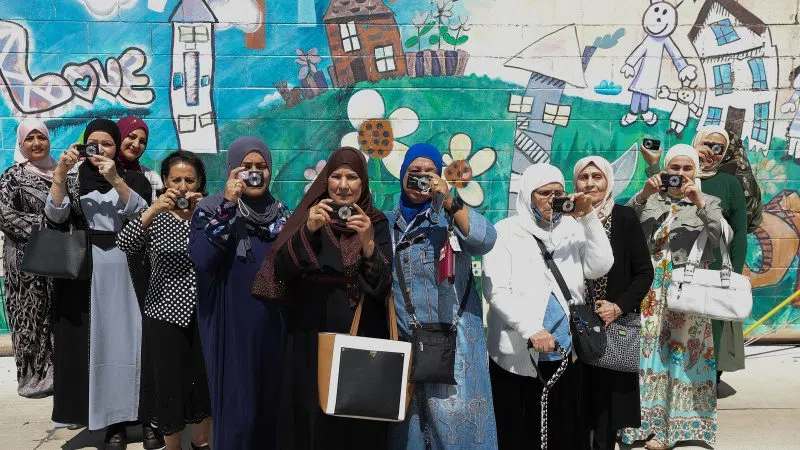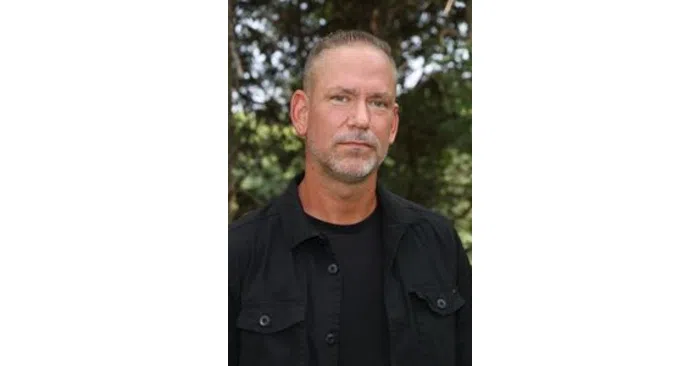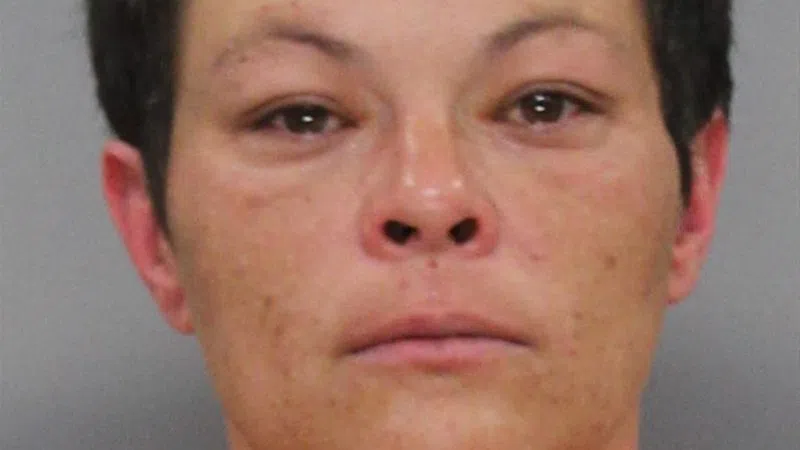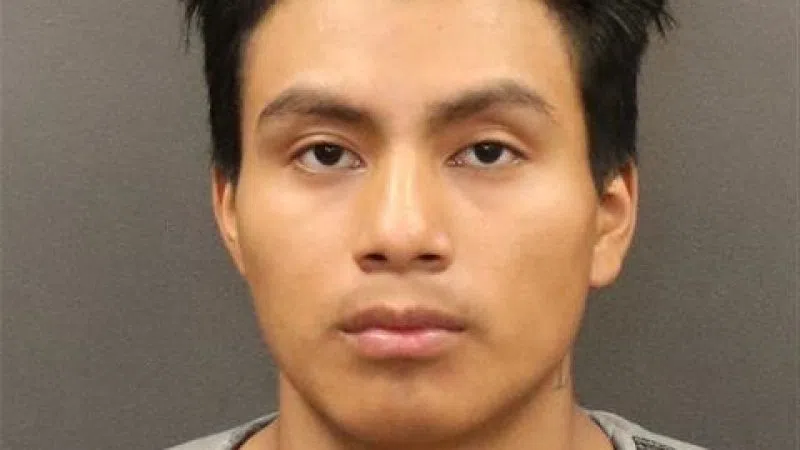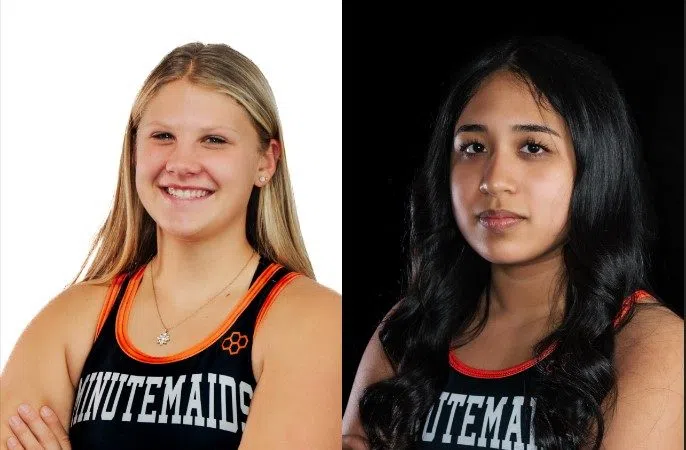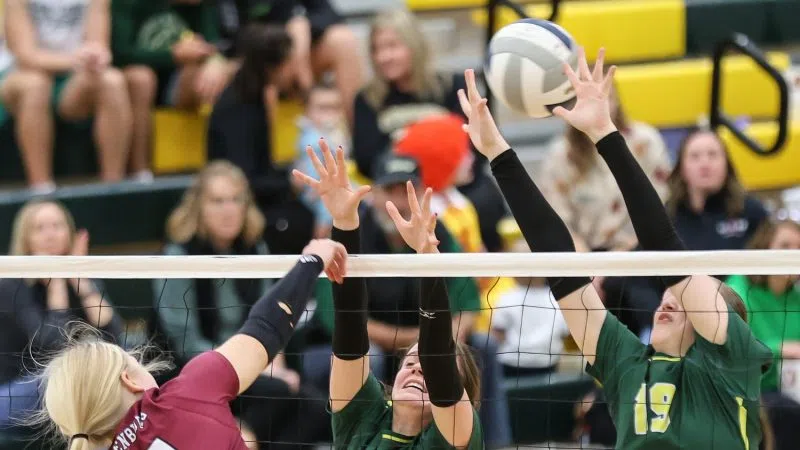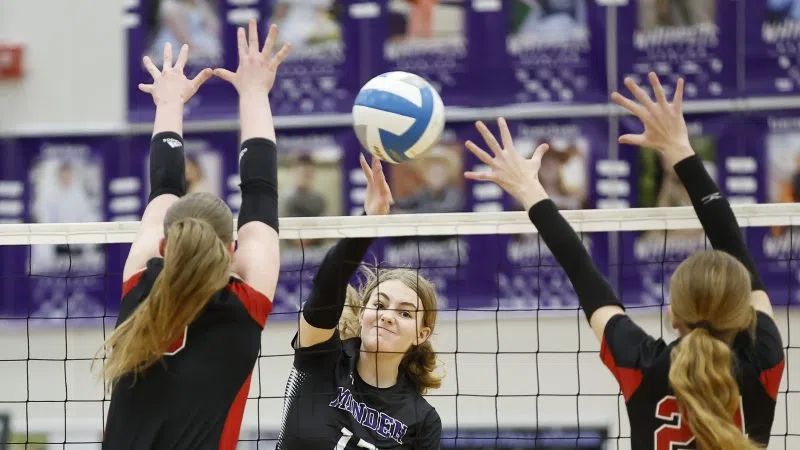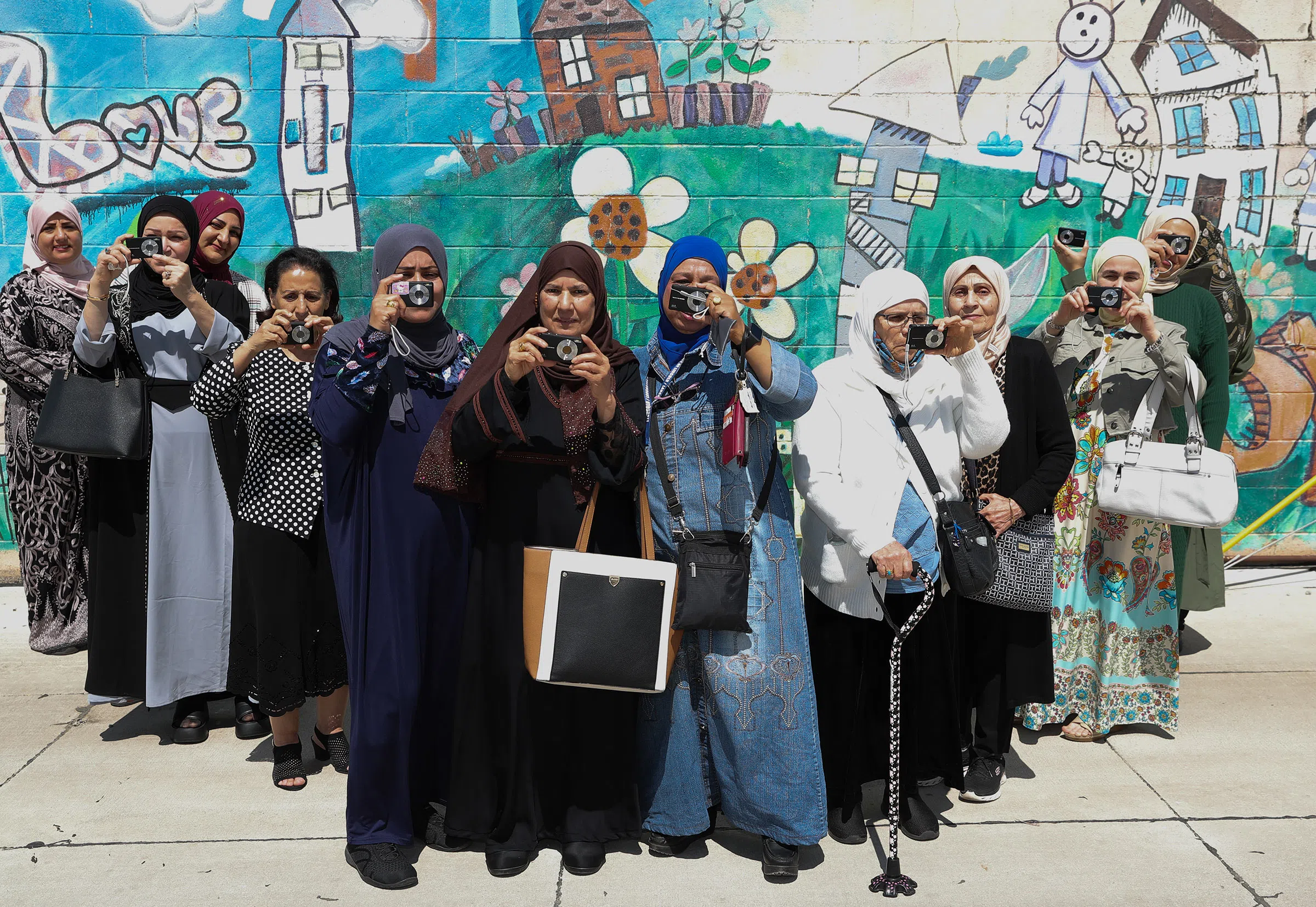
Now living in Lincoln, these Middle Eastern and North African women participated in a PhotoVoice research project led by UNK associate professor Tiffani Luethke. They used cameras to document the impacts of resettlement. (Photo by Erika Pritchard, UNK Communications)
LINCOLN – As the spring sun warmed the Lincoln community center, a sense of pride and resilience filled the room.
Middle Eastern and North African (MENA) women gathered, their eyes gleaming with the stories behind each photograph on display. The walls adorned with images and quotes served as a testament to their journeys.
Mostly speaking in Arabic, the women chatted about their creations, pausing to happily snap photos in front of their work with female family and friends.
Among the photographs, some spoke of solitude – an ever-present challenge for refugees and immigrants thousands of miles from home.
One image featured a house plant, which served as a stand-in for family and friends for one woman.
Another image depicted a remote country road, a place of solace and reflection where the photographer walks to relieve stress.
“I just lay down there on the concrete and look at the sky,” she shared. “It gives me a lot of energy. … It helps me when I am mad, sad and happy. So, I feel the street shares a lot of my emotions.”
Other photos celebrated strength, depicting cultural foods like lamb, baklava and ghee; close-ups of hijabs symbolizing identity; joyous family gatherings; and a proud moment captured in a U.S. naturalization certificate.
This community forum was the culmination of an eight-week research project led by University of Nebraska at Kearney associate professor Tiffani Luethke.
Focused on the challenges and strengths of MENA women following forced displacement, Luethke employed PhotoVoice – a research method that empowers participants to guide the project.
The women themselves set the questions, ensuring their voices and perspectives were at the forefront.
“This is a really different approach where you say, ‘I want the participants to guide the research because they know themselves better than anyone,’” Luethke explained. “Why wouldn’t they?”
RESILIENCE AND LEADERSHIP
Luethke’s journey with the MENA community started before her doctoral research at the University of Nebraska-Lincoln, when she connected with the MENA Hope Project, which assists refugees and immigrants resettling in Nebraska at the Good Neighbor Community Center in Lincoln.
Luethke, who was studying human sciences with a specialization in leadership studies, sought to uncover how MENA women emerged as leaders post-resettlement. She hoped to challenge the limited narrative that depicted them solely through motherhood and the mosque.
“That can’t be the whole picture,” Luethke thought, reflecting on her own experiences with her husband Yousef Ghamedi’s family from Saudi Arabia. “Overwhelmingly, the Middle Eastern and North African women that I have met are strong, confident, not oppressed women, totally opposite of their portrayal in the literature.
“The impression you get in the literature about MENA women is that they’re submissive, precious and they would never talk back.”
Over two years, Luethke immersed herself in the MENA culture, building trust with the women. She eventually conducted interviews in their homes. As she expected, she found they used leadership skills in other ways.
“I found that there were instances of powerlessness,” she said, “but overwhelmingly the women in the study had overcome those challenges and had used those leadership skills and had emerged as leaders to not only overcome these challenges but to help people with these same challenges.”
STRENGTH IN COMMUNITY
Five years later, Luethke revisited her research, drawn to the strengths and power of MENA women. The recent study, an extension of her dissertation, began in January through the PhotoVoice project.
The 12 women chose topics important to them about resettlement, capturing related images with cameras provided by the project. For many, it was their first time using a camera outside of a cellphone.
Weekly meetings with Luethke allowed the women to discuss their photos, exploring the themes and issues represented.
“Why did you take the photo? How does it represent the theme? How does it represent bigger issues in our lives?” Luethke asked, recording their responses for her research. After a break for Ramadan, the group reconvened – over desserts and tea – to review the selected photos and quotes for the community forum.
“That was nerve-wracking for me because I thought, ‘What if they hate it? What if they feel they’ve been misunderstood or misrepresented?’” she said. “But surprisingly, they didn’t have any changes. They loved what we said, and they loved the findings that came from the data.”
The research highlighted one main challenge – loneliness. Many women were separated from extended family or friends still abroad or in different states. Yet, six strengths emerged, including a sense of place, community and engagement, which helped combat this loneliness.
“They formed a different kind of community with people here in the Lincoln area,” Luethke noted. “They created these bonds so they could have this sense of community with people who otherwise they may not have connected with.”
For Samerah Al-Momani, the study was a chance to connect with other Arab women, a rare opportunity in Lincoln. The mother of three immigrated to the United States from Jordan 26 years ago. There are few Jordanian immigrants in Lincoln.
“A lot of the Iraqi ladies, we share our problems, we share our feelings about the country here and how we live. We share the culture,” she said. “I made more friends with this group.”
Zainab Al-Baaj, an Iraqi refugee and the MENA Hope coordinator, agreed.
Having moved to Nebraska at age 18 with her husband and first child in 1994 after spending 3 1/2 years in a Saudi refugee camp, she emphasized the project’s importance in giving women confidence.
“Somebody wants to hear my story. What’s important to me,” she said.
Sometimes, Al-Baaj mentioned, she and other MENA women feel invisible.
“It’s very important for us, that we exist.”



